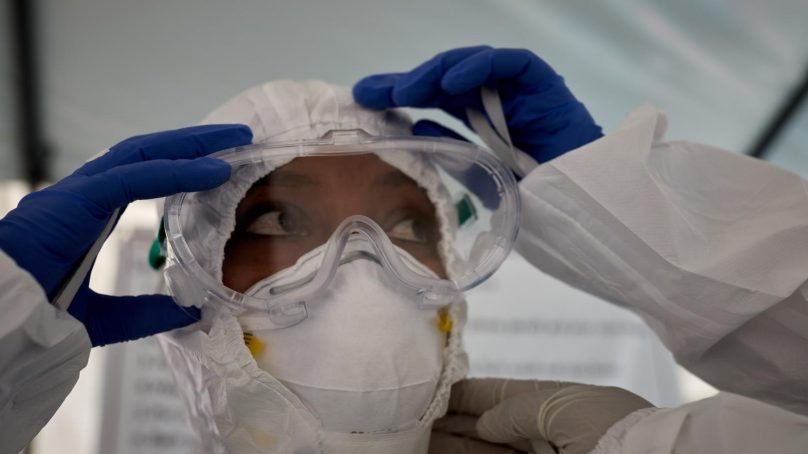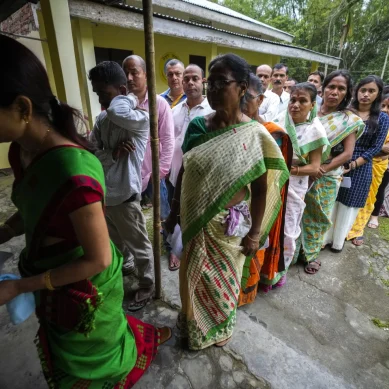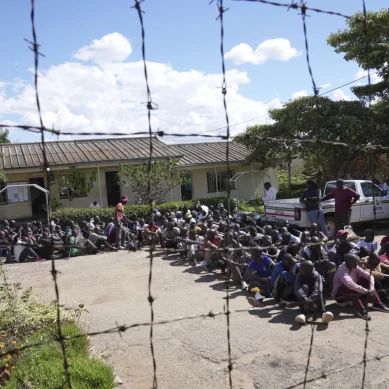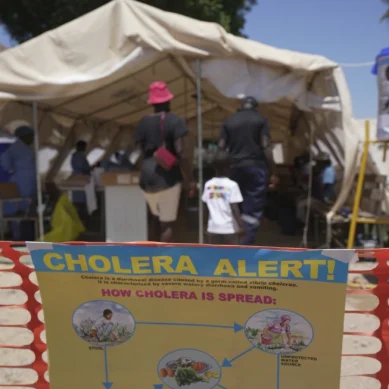
Those of us who try to prepare communities for outbreaks of infectious diseases have a saying: Once you’ve seen one pandemic, you’ve seen one pandemic. In other words, each deadly outbreak is different and brings with it, new challenges.
As members of a team that helps the nation’s largest public healthcare system prepare for and respond to outbreaks, we are on constant alert. In the past decade alone, healthcare professionals around the world have fought back many of these invisible threats, from Ebola in 2014 to Zika in 2016. Now, we battle Covid-19 and it is without question much more difficult to manage.
We’re learning more and more about the virus each day, and one of its biggest challenges has been its biggest surprise: The disease’s effects can linger long after people are infected, saddling them with symptoms for months on end.
With most viruses, people feel sick for a while then get better. With Covid-19, the body aches, shortness of breath, headaches, difficulty concentrating and fatigue sometimes don’t go away. These patients become Covid-19 “long-haulers,” who have lingering issues and may experience damage to their heart, lungs, kidneys or brain – putting them at increased risk for cardiovascular complications such as heart attacks and strokes, cognitive and neurological impairments and lung damage.
The number of new infections continues to break records and the more cases we have, the more long-haulers there will be.
Late last year, the federal government hosted its first workshop focused on Covid patients with long-term symptoms and urged the world to take the condition seriously. Our workplace, NYC Health+ Hospitals, is planning three Covid-19 recovery centres – called Covid-19 Centres of Excellence – strategically placed around the city. One, in the Bronx, has already opened. But patients will need much more.
We don’t know how many Covid-19 long-haulers are out there – there may be tens of thousands or tens of millions. An analysis of more than 1,700 hospitalised patients from China published this month found that three-quarters reported at least one lingering symptom of Covid-19 six months after onset.
We’re also still learning about how an acute illness can become a set of chronic conditions: There’s no standardized definition for long-haulers, and data are limited, including what recovery rates may look like.
We cannot leave these patients behind. The number of new infections continues to break records and the more cases we have, the more long-haulers there will be. These patients need designated treatment centres, which can provide expert help on an ongoing basis.
In our outpatient Covid-19 recovery centres, patients have access to specialists from a range of disciplines, including pulmonary, cardiology and neurology, along with on-site radiology, optometry, dentistry and pharmacy.
Any patient with a referral is welcome, from those who just need extra help getting back to baseline, to those who are completely debilitated by chronic pain, or can’t get out of bed or catch their breath. The centres will provide mental health services as well, as one in five Covid-19 survivors receive mental health diagnoses within 90 days of infection.
Keeping everything centralized enables providers to coordinate care from the very first visit, during which time a clinician will assess a patient’s unique needs and determine which specialists they need to see. For instance, a 30-year-old woman who comes to the centre for lingering chest tightness may be able to see a primary care doctor and undergo testing for lung or heart function all during the same visit.
To make sure access is provided to the people who need it most, our other Covid-19 recovery centres are located in areas that have been historically underserved and hardest hit by the pandemic.
In New York, Mount Sinai, Hackensack Meridian and Richmond University Medical Centre also have established Covid-19 recovery centres. And so, have several clinics around the country – associated with hospitals such as Penn Medicine in Philadelphia, the University of Texas Medical Branch and the University of California, Davis, for example.
The appearance of these specialized clinics is a good thing, but it’s only one piece in solving the puzzle of Covid-19 long-haulers. To better serve this growing population, we need to know more about them by conducting more widescale research about their experience. We must develop criteria for clinical care, so that providers all around the country can follow best practices. And we need to ensure that insurance companies pay for continued care of these patients.
Although we still have much to learn about Covid-19’s unique nature, it’s time to officially recognize that this pandemic could have a very long tail, with lingering health consequences for millions. We must do what we can to meet their needs.
- A Knowable report











